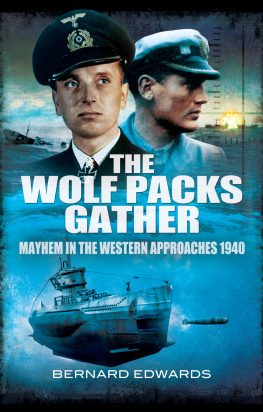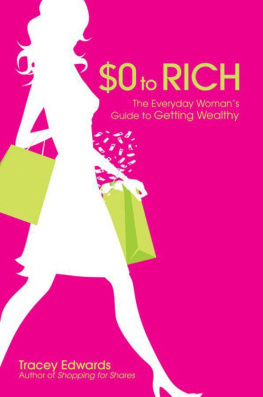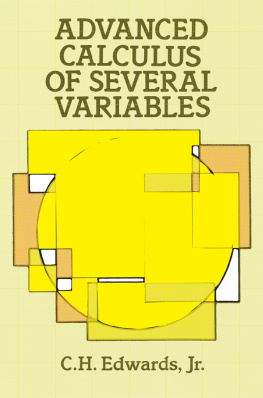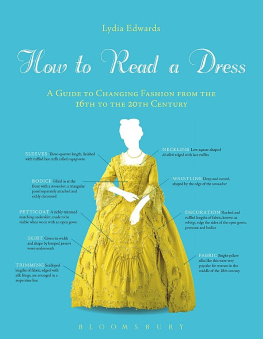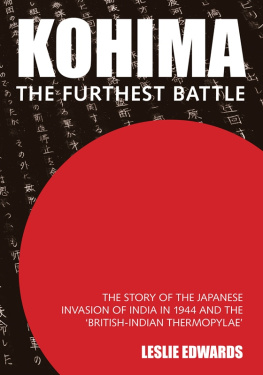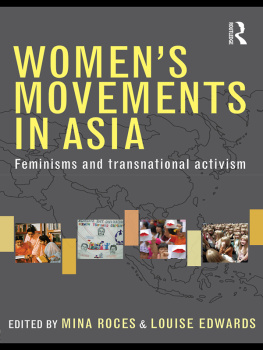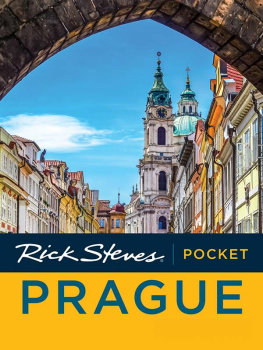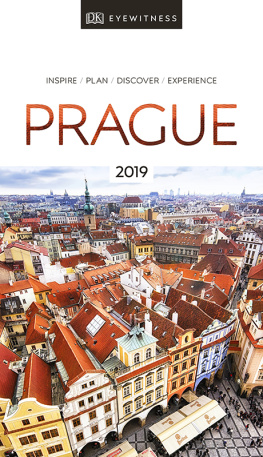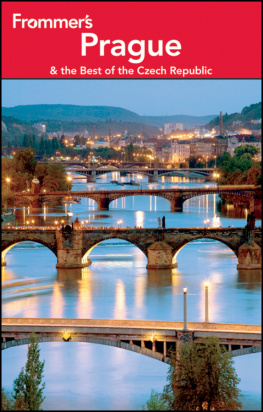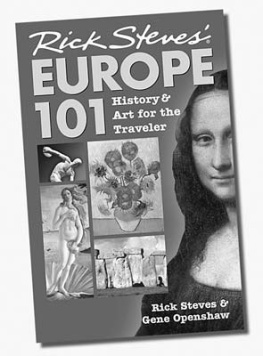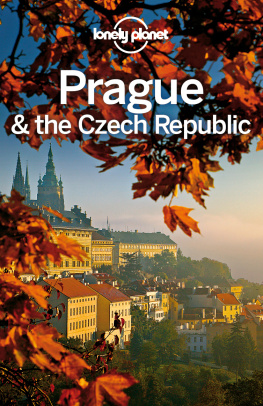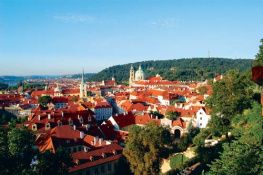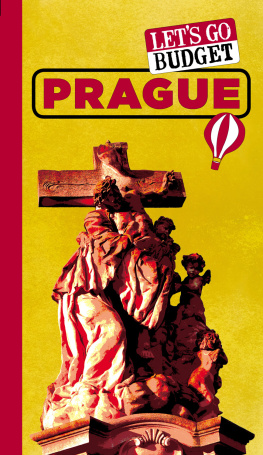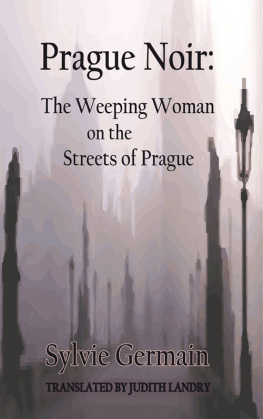Edwards - Praguewalks
Here you can read online Edwards - Praguewalks full text of the book (entire story) in english for free. Download pdf and epub, get meaning, cover and reviews about this ebook. City: New York;Prague (Czech Republic);Czech Republic;Prague, year: 1994, publisher: Henry Holt and Co., genre: Art. Description of the work, (preface) as well as reviews are available. Best literature library LitArk.com created for fans of good reading and offers a wide selection of genres:
Romance novel
Science fiction
Adventure
Detective
Science
History
Home and family
Prose
Art
Politics
Computer
Non-fiction
Religion
Business
Children
Humor
Choose a favorite category and find really read worthwhile books. Enjoy immersion in the world of imagination, feel the emotions of the characters or learn something new for yourself, make an fascinating discovery.

Praguewalks: summary, description and annotation
We offer to read an annotation, description, summary or preface (depends on what the author of the book "Praguewalks" wrote himself). If you haven't found the necessary information about the book — write in the comments, we will try to find it.
Prague has been described as a museum in which people live and work, for nowhere are things ancient and beautiful as concentrated as they are in Prague. A book for impassioned lovers of history and romance, Praguewalks includes five intimate walking tours, plus photos, and maps.
Edwards: author's other books
Who wrote Praguewalks? Find out the surname, the name of the author of the book and a list of all author's works by series.
Praguewalks — read online for free the complete book (whole text) full work
Below is the text of the book, divided by pages. System saving the place of the last page read, allows you to conveniently read the book "Praguewalks" online for free, without having to search again every time where you left off. Put a bookmark, and you can go to the page where you finished reading at any time.
Font size:
Interval:
Bookmark:
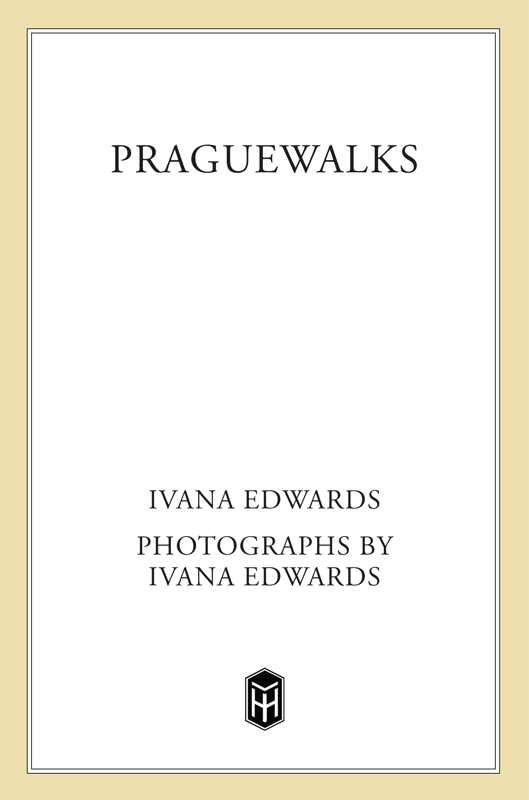


The author and publisher have provided this e-book to you for your personal use only. You may not make this e-book publicly available in any way. Copyright infringement is against the law. If you believe the copy of this e-book you are reading infringes on the authors copyright, please notify the publisher at: us.macmillanusa.com/piracy.
Contents
To my uncle Otakar Marek, in memoriam
Acknowledgments
My aunt Naa Markov gets first thanks for cheerful assistance too extensive and varied to mention. My deepest gratitude goes to my father, Sam Edwards, and my stepmother, Martina, who, despite heavy schedules of their own, played a major role in expediting and easing my sojourns in Prague over the past year, and made possible the writing of this book. Many thanks are due to Lubo Mayer, for his help and chauffeuring; to Magda Mrzov and Jaroslava Mrzov for their support; to Zdenk Luke, Dobroslav Lbal, the staff at the Pragensis branch of the Prague Municipal Library, Hana Krejov at the Klementinum, and all those who provided their time and expertise. Not to be forgotten is Pavla Bartakov, who generously shared her cherished library with me. Much appreciation is due to my editor, Theresa Burns, for her unfailing enthusiasm, good humor, and sound guidance. Thanks also to Fifi Oscard for delivering this project to my door, and to my agent, Ed Knappman. And not least, to Dan Stracuzza for his support and conscientious processing and printing of my photographs.
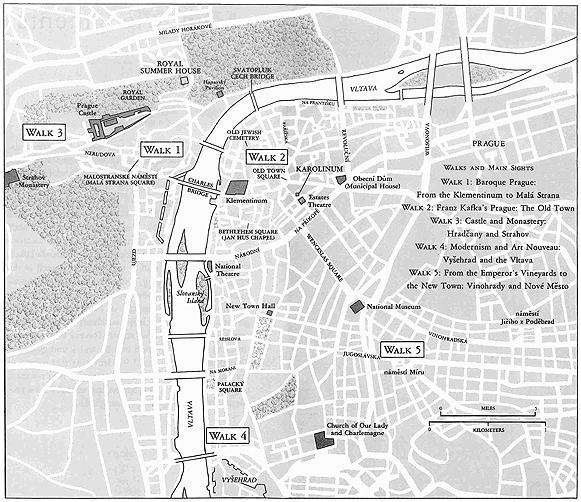
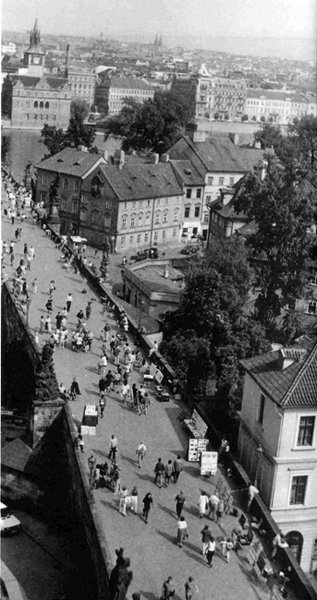
Charles Bridge and the Old Town
Introduction
You, dear traveler about to embark on your journey, will be in exquisite company: nearly a thousand years worth of continental romantics and realists have feasted their eyes on the ancient capital of Bohemia and reported back in no uncertain terms. Thomas Mann called Prague one of the most magical cities on earth: In her old beauty she surpasses much of what is Italian. It is not hard to see what he meant, for in its hilly, deeply curving river-valley setting Prague seems to have been built for the crown of a city. As French architect Jean Nouvel has noted, All residents opening their windows here have the impression they live in a castle.
Prague is one of those cities that profoundly score the face of Europe, but here the feeling of eternity has hardly changed (though much else has). It is the ultimate nostalgia trip for those who resonate to the grandeur, the sweep, and, yes, the pathos of history.
In the last few years, visitors have been joined by returning natives, on whom it instantly dawns that the Prague they are seeing is actually more extraordinary and redolent of the past than the Prague of their youthful memories, the legends, or the hype. There are so many returning to Prague stories so many have left, so many have returned and so many dreamed of returning before time caught up with them.
My own returning occurred in the summer of 1964, in what proved to be an unexpected, sharply personal revelation that had a lot to do with identity, taking place as it did at the time of a precarious coming-of-age. On the last leg of my first European tour I arrived at Pragues old Ruzyn Airport, then reminiscent of a World War II airplane hangar, to an overwhelming royal reception, as the first member of my family to go back more than a decade. (My parents had bundled me up and departed in the face of the dooming Communist makeover in which my father had no intention of participating.) I recall a torrent of red roses, endless posing for my uncles manic camera, and being excitedly fussed over by relatives, including battling grandmothers, who enveloped me in warm affection and curiosity.
Once I was in the city, shadowed by my devoted entourage that seldom left me alone, my eyes and expectations took a while to adjust to the shades of yellow that seemed to predominateor was it the opalescence of light, especially before dusk, and the aureate view of Prague Castle (known as the Hrad) from the Old Town side of the river, that made it seem so? Zlat Praha, golden Prague the description is said to come from the copper roofinglong since dismantledthat Emperor Charles IV ordered for the Castle when he was renovating it. But these were the dreary gray days of the early sixties, and the famous Prague gold was less in evidence than it is today, when many buildings and coats-of-arms and hundreds of gold-whiskered tops of spires seem freshly gilded. It didnt take long, then as now, to see and feel beyond the surface to the otherworldly depths, to be transported back through hundreds of years of history, and farther back still into the Middle Ages, along meandering cobblestoned lanes with little hand-cut squares of granite embedded in the sidewalks in simple geometrical patterns.
Despite my delight in discovery, it was impossible to escape the presence of the ruling Communist government that shrouded everyday life like rusty chain mail, suffocating the natural vitality of a nation. Disregarding the pall as much as I could, I stopped at my familys landmarks and started to feel a pungent blend of pleasure and melancholy flowing through my veins, suffusing my brain. The sense of incalculable loss hit me hardest when my uncle took me to the top of the Gothic Bridge Tower on the Mal Strana side. This instantly became my favorite view of the citythe panoply spread below is enchanting, but there is something tangible and irrepressible about rooftops when you are so close to them, yet far enough to take them all in at once.
While those memories cant fail to linger in thinking about a lost generation, Prague is a different city today. In November 1989, the day we had all been dreaming about and praying for finally dawned as the oppressors gave way. Their time was up and they knew it. Prague Castle, as conspicuous as a compass to align oneself by, used to look phantasmagoric. Long the seat of Kafkaesque power (the Hapsburgs were entrenched for three hundred years), it seemed to brood like a despised, all-seeing warden over the whole city. The atmosphere could be so unsettling, some travelers probably aborted their stay. Back home they would shake their heads at the intensity and poignancy of it all. This went on for more than forty years (fifty years if you count the Nazi occupation). Now the Hrad is home to a democratically elected government and a president who is also a voice of conscience to the whole world, Vclav Havel.
Just as Paris is Francealmost anything of real consequence that happens in the country begins therePrague is the Czech lands. This was also true in the former Czechoslovakia, which helps explain why the Slovaks felt they had to separate: they no longer wanted to be dominated by Prague. Today, with its 1.25 million people, 497 square kilometers, and 10 districts, a stranger will find a city seething with post-Communist impatience, anxiety, and sometimes confused expectations and behavior. The invincible urge is to forget the past and quickly forge a future. Ironically, most of what visitors want to seemonuments, palaces, gardens, art, architectureis old, but everything else promises, in time, to be new. A new society, emerging from synthetic isolation and cultural oblivion, is abuilding.
Font size:
Interval:
Bookmark:
Similar books «Praguewalks»
Look at similar books to Praguewalks. We have selected literature similar in name and meaning in the hope of providing readers with more options to find new, interesting, not yet read works.
Discussion, reviews of the book Praguewalks and just readers' own opinions. Leave your comments, write what you think about the work, its meaning or the main characters. Specify what exactly you liked and what you didn't like, and why you think so.

